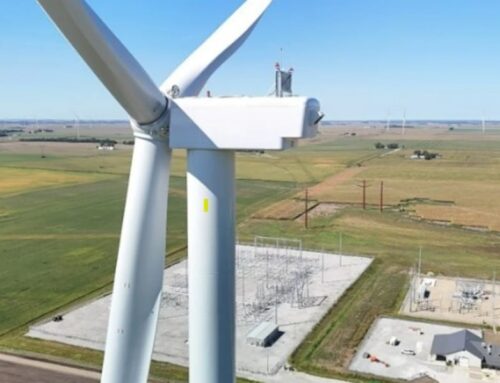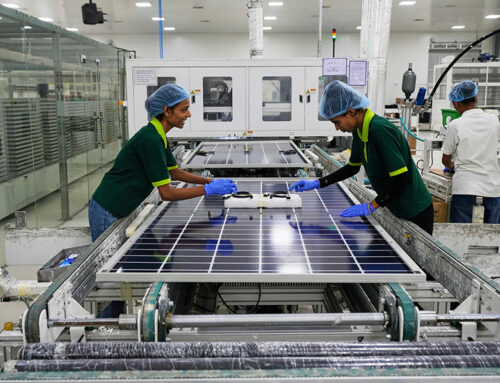Meta Platforms’ AI lay-offs triggered by battle for resources, ex-research scientist says
November 13, 2025
A former research scientist at Meta Platforms, Tian Yuandong, has shed some light on the US social media giant’s restructuring of its artificial intelligence team, while casting doubt on traditional scaling laws used in AI model development.
In an interview on the Chinese video channel Silicon Valley 101 broadcast on Wednesday, Tian – previously research scientist director at Meta FAIR, the Facebook parent’s legacy Fundamental AI Research team – said limited computing resources had triggered internal conflicts inside the group, as large language models (LLMs) became a major focus of AI development around the world.
Tian’s assessment appeared to substantiate why Meta – which also owns Instagram, WhatsApp, Messenger and Threads – let go of around 600 employees from its AI research unit, months after the company revamped its strategy through the acquisition of data-annotation firm Scale AI and a poaching spree from rival AI laboratories. Meta confirmed the lay-offs, which included Tian, last month.
Do you have questions about the biggest topics and trends from around the world? Get the answers with SCMP Knowledge, our new platform of curated content with explainers, FAQs, analyses and infographics brought to you by our award-winning team.
While Tian’s interview was conducted late last month, its broadcast coincided with a report by The Financial Times that Meta’s chief AI scientist and FAIR founder, Yann LeCun, was leaving the Menlo Park, California-based company amid internal tensions.
LeCun, who became a Turing Award laureate in 2018 for his work on deep learning, planned to depart to launch his own start-up, according to the report.
Tian Yuandong, former research scientist director at Meta Platforms’ FAIR team. Photo: Handout alt=Tian Yuandong, former research scientist director at Meta Platforms’ FAIR team. Photo: Handout>
Meta’s restructuring kept the newly formed Super Intelligence Lab – led by the firm’s new Chief AI Officer Alexandr Wang, formerly CEO and the founder of Scale AI – largely untouched, which signalled not only a change of strategy but also increased competition for resources inside the company.
On the broadcast, Tian also cast a pessimistic view on the AI industry’s traditional scaling laws, which attributed improved AI system performance to increasing the size of a model’s parameters, training tokens and computational resources.
“What we truly need to pursue is figuring out which kinds of models can move forward more efficiently and effectively,” he said. “Compute isn’t everything. We need a deeper understanding of how models work.”
While acknowledging that LLMs provided “an interesting path” for developing AI further, Tian questioned whether these systems were “the right one”. He pointed out that AI models were now trained on token volumes that far exceeded what was available to humans. He added that LLMs still lacked the ability of human beings to obtain data and dig deeper into it.
“Perhaps our current training algorithms are not optimal,” he said.
Tian also said open-source models would continue to thrive. AI systems are likely to become more specialised, focused on vertical domains and application-driven goals, rather than a universal model that is capable in every field, he added.
The Meta Platform sign at the entrance to the company’s headquarters in Menlo Park, California. Photo: Shutterstock alt=The Meta Platform sign at the entrance to the company’s headquarters in Menlo Park, California. Photo: Shutterstock>
A Meta veteran for more than a decade, Tian holds degrees from Shanghai Jiao Tong University and Carnegie Mellon University in the US. He has also published influential research on reinforcement learning and LLMs.
While a number of start-ups and Big Tech firms have reached out to him, Tian said he had yet to decide on his next step. He hoped that what comes next would combine application with frontier research.
As AI automated more workflows, Tian predicted that the “traditional notion of work may disappear”.
“Overall, fewer people may be building AI itself,” he said. “But more people will be using AI as a tool to build other things.”
This article originally appeared in the South China Morning Post (SCMP), the most authoritative voice reporting on China and Asia for more than a century. For more SCMP stories, please explore the SCMP app or visit the SCMP’s Facebook and Twitter pages. Copyright © 2025 South China Morning Post Publishers Ltd. All rights reserved.
Copyright (c) 2025. South China Morning Post Publishers Ltd. All rights reserved.
Terms and Privacy Policy
Search
RECENT PRESS RELEASES
Related Post


